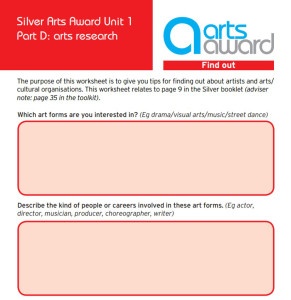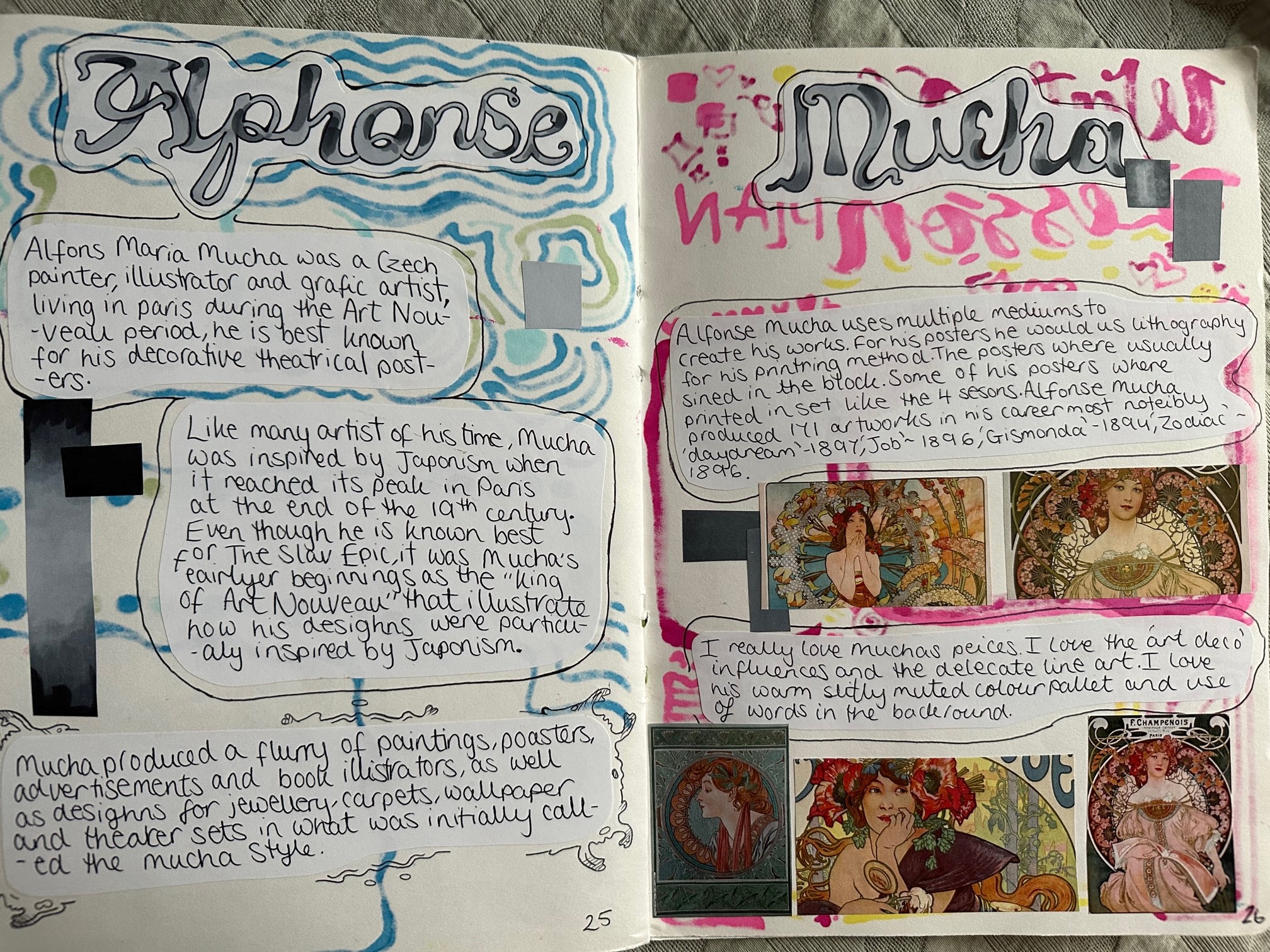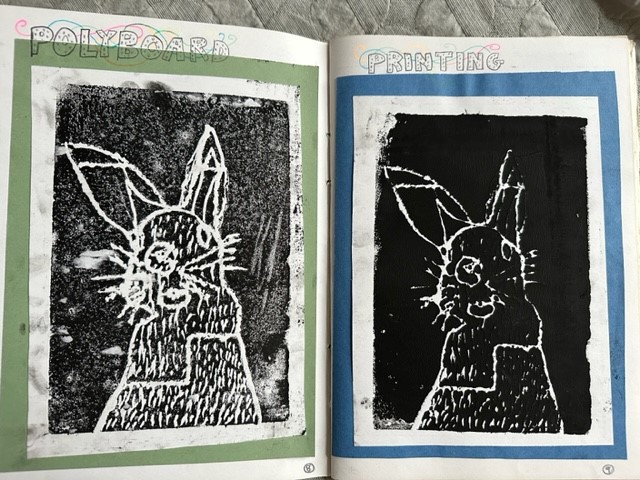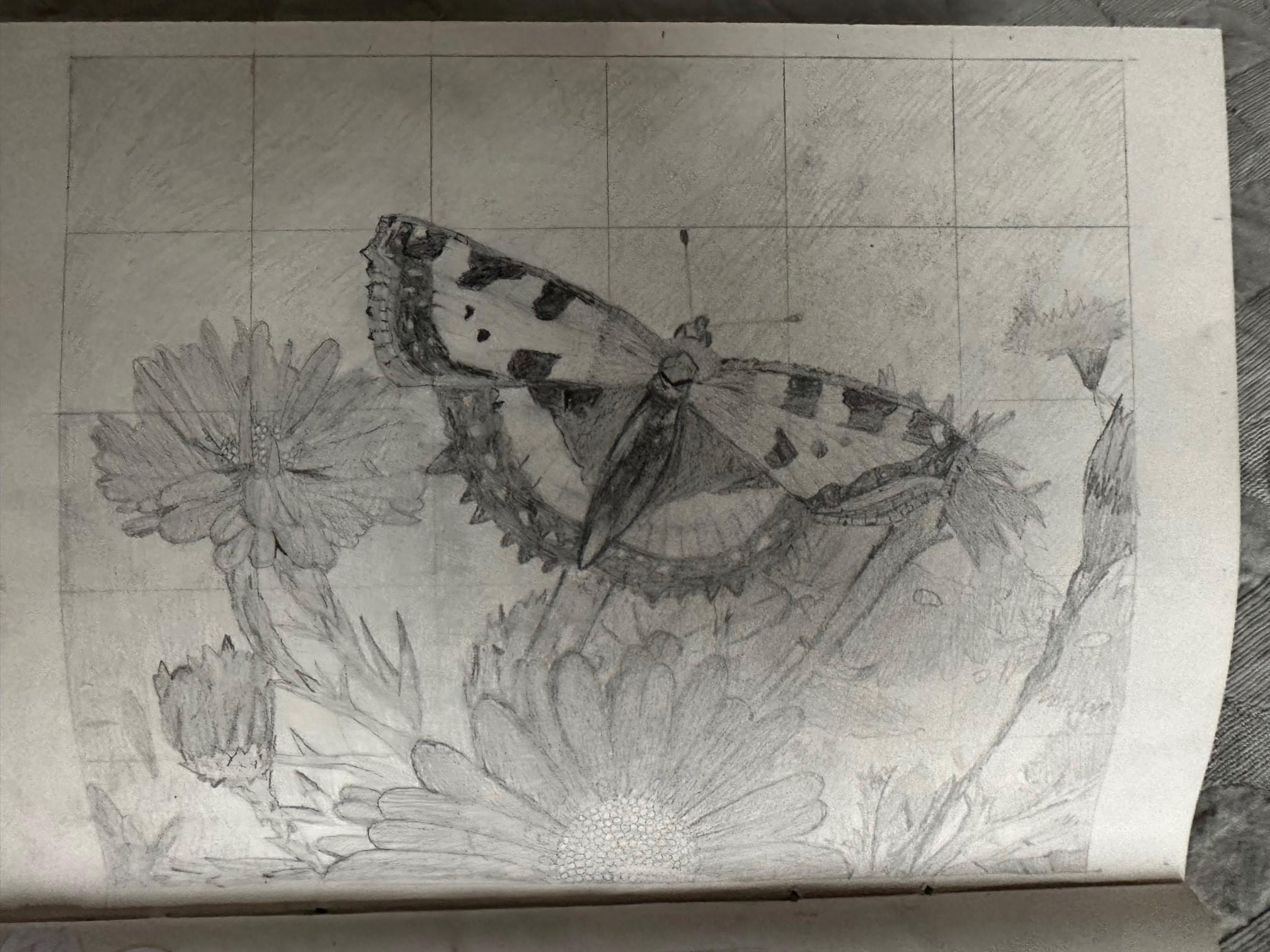
Remote delivery ideas for Silver Arts Award
BY: Layne Harrod
13 May 2020
We have been regularly publishing blogs exploring remote delivery ideas for advisers and young people working towards their Arts Award during this time. To continue this, today, we look in more detail at Silver Arts Award.
Silver Arts Award is a Level 2 qualification and has been embedded into the delivery of BFI Academies nationwide. It also remains a popular choice for schools to include Silver as part of their KS4 curriculum or extra curricular offer. It has been great to hear about the many different Arts Award centres including arts and cultural organisations and schools who have rapidly adapted their delivery to enable young people to continue to work towards their Silver award during this time.
Facilitators, teachers and parents have told us that they have appreciated having the structure of Arts Award to work through, and the lure of being able to achieve something tangible (a nationally recognised qualification) despite school closures has been a big bonus for many. This blog will suggest some ideas for how to deliver Silver remotely, however this isn’t exhaustive and if you would like to have a chat to explore your options please do get in touch.
Use our Digital Portfolio Platforms Resource for ideas on how to gather and review evidence digitally, and our free portfolio building templates for Unit 1 and Unit 2, provide a good starting point for what young people need to be capturing. These templates are now available in Word format so can be typed into directly. The Silver Hub on Arts Award Voice is also an excellent resource for young people aged 14+, as is their Silver introduction and checklist.
 Please note that these ideas are not a replacement for correct use of your Arts Award toolkit, and all advisers supporting young people to achieve their Arts Award should have attended the appropriate Arts Award training. If young people are communicating with you, or others, via video ensure that you have considered the safeguarding implications and are following your organisations’ own safeguarding policy.
Please note that these ideas are not a replacement for correct use of your Arts Award toolkit, and all advisers supporting young people to achieve their Arts Award should have attended the appropriate Arts Award training. If young people are communicating with you, or others, via video ensure that you have considered the safeguarding implications and are following your organisations’ own safeguarding policy.
Whilst we are encouraging advisers to support young people to achieve their Arts Award by adapting project plans to a digital/remote offer and we feel it is achievable for young people to fully complete their Arts Award remotely, we appreciate the particular challenges that some young people will face especially if they have additional needs, are not in school, may not have access to the internet/materials, have lost one to one support and are not able to receive the support they require at home.
Don't forget to take a look at our Extended Extraordinary Regulatory Framework guidance, supporting you to continue to deliver Arts Award even in lockdown.
Unlike the arrangements made in summer 2020, we will not be able to accommodate the submission of incomplete portfolios for moderation, on which to calculate the overall results. Under this new arrangement advisers will continue to deliver and assess young people’s portfolios in full and a sample of work will be moderated by Trinity. Adaptations under the Extended Extraordinary Regulatory Framework will instead focus on:- Support with planning your Arts Award programme including building in contingency plans and collecting evidence in digital format, as is our recommendation
- Adaptations to the evidence requirements and time guidance most notably at Silver and Gold
- Advice and guidance on how to meet the existing requirements of Arts Award making best use of digital tools and arts and culture
- The continuation of remote online moderation
Download our EERF Centre Guidance for more information.
Let’s get to it
Silver Arts Award has two units. Unit 1 is about arts practice and art form development and Unit 2 is focused on leadership in the arts. At Silver level, young people work independently, with support and guidance from their adviser. The Silver framework provides opportunities for young people to take responsibility for their development and role as a leader and explore opportunities and pathways in more depth.

Unit 1 arts practice and pathways
This unit is all about identifying and planning a personal arts challenge which young people then plan, do and review. They also review arts events and research artists and arts organisations to find out about training and career pathways. If your young people are part way through their Silver, our mapping resource can be used as a tool to support the young person to map out what they can do for the remaining parts.
Unit 1 Part A: identify and plan an arts challenge
This content of this will really depend on the art form that the young person chooses to focus their arts challenge around. As they will concentrate on acquiring and developing new skills within their art form over time, they will need to select something that they can access that goes beyond a one-off workshop.
They can participate in a series of online workshops/tutorials that focus on their chosen art form, for example Openlearn offers a range of free online courses exploring visual arts and Arts Award partner, National Saturday Club has a number of online masterclasses in creative writing.
For their Unit 1 Part B: implement and review an arts challenge, you can encourage your young people to regularly capture evidence of their progress as they undertake their arts challenge. This may include an activity log which could be recorded via audio/video or note form and screenshots of their participation. They could consider asking a household/family member or peer to review their challenge, or they could post the results online for others to comment on, for example as a post on Arts Award Voice.
Unit 1 Part C: review arts events
This part is about young people experiencing and reviewing arts events and sharing their reviews with others. It is fine for young people to review arts events online whether they be live or pre-recorded and currently there is a huge range of online events including performances, gallery exhibitions, films, readings and many more. For young people without internet access perhaps they could consider CDs, DVDs or books to review.
If your young people are reviewing films, Into Film has a great range of resources and guides on how to write reviews.
British Council Theatre and Dance has a roundup of performances online that is regularly updated.
‘Visit’ a gallery or museum virtually and review an exhibition or collection of art Google Art & Culture is an excellent starting point, and Smartify has made all of its audio and visual museum guides free for the rest of 2020
Listen to some music and review BBC 10 Pieces is a great starting point for classical music.
Make sure that young people focus on the artistic qualities of what they have experienced. For sharing reviews Arts Award Voice is a good platform to consider. Young people can also share with household members, just make sure they record how they shared their review(s).
Unit 1 Part D: arts research
This part is about young people working with arts practitioners to find out about their career and work. If young people were part way through this, it may be that they can carry on engaging with the arts practitioner(s) through emails or phone/video calls, they may even be able to shadow any online delivery of workshops that are taking place. Young people can reach out to practitioners online if they haven’t done so already. They also research future education and career opportunities in the arts here which has in the past, and can continue to be, carried out most effectively online.

Unit 2: arts leadership
This unit is all about young people developing their leadership skills by planning, delivering and reviewing an arts project. Although this might require some creative thinking, it is achievable for young people to complete this element remotely.
Unit 2 Part A: identify leadership role and plan the project’s aims
This will be unique to each young person, their individual aspirations and the leadership skills they wish to develop. Advisers will need to work closely with the young person to plan a project that is achievable during this time but stretching enough to cover all of the required evidence. Some suggestions for Silver leadership projects during this time are;
- Developing and leading a series of visual arts workshops with peers leading to an online exhibition
- Leading a series of performing arts workshops/rehearsals resulting in a performance that takes place over video conferencing/is filmed and streamed to an invited audience
- Creation, development and promotion of an arts-based website/ezine/online resource
Top tip: if the young person is able to make changes to their project as time progresses and in line with government guidelines, encourage them to document these adaptations fully as this will be a source of rich evidence.
Unit 2 Part B: plan the practical issues
Young people develop a detailed plan for their leadership project in this part. Support your young people to think about any additional elements they may need to consider now that they are delivering remotely. For example; safeguarding, relevant risk assessments etc. The young person will need to take into account the needs of the participants/audience working in this remote context. Remember to plan in how they will collect feedback now that they are working in this way - this could include screenshots of comments from participants, transcripts of chats or perhaps short feedback forms/surveys that could be emailed out after.
Unit 2 Part C: effective arts leadership
Recordings, email correspondence, notes on meetings/discussions, screenshots will all serve as useful ways to evidence their effective arts leadership. During this time when days are blending into each other, a project diary is also a great way for the young people to document their delivery of their leadership project and ongoing reflection on the development of their leadership skills. This could be online, handwritten or recorded. The diary will prove a useful tool when they come onto Part E as they review the project and their leadership role as a whole.
Unit 2 Part D: working effectively with others
Young people can document their effective working with others by including screen shots, email correspondence, video recordings and transcripts of conversations/meetings. This might include interactions with peers, their adviser or teachers/practitioners. Here, young people can reflect on resolving unique problems and challenges that may arise through working in this remote context, how they are communicating in different situations and how to make and keep commitments with others. This is where the feedback that was planned to be collected comes in useful!
Unit 2 Part E: review the project and the leadership role
As this part is reflecting on their project as a whole, there is no need for this to be treated any differently during these times. Young people should still reflect on their project overall using the evidence requirements in your Toolkit as a guide. You may even find there is a great deal of reflection that can take place about how they adapted their project ideas to an online context and the problems they solved to do this.
All of these ideas are just suggestions, but we hope that they provide a good starting point for you to deliver Silver Arts Award remotely.
If you have any questions or would like more support or guidance please do get in touch, via email on artsawardenquiries@trinitycollege.co.uk
Related posts
BY: Nicola King
BY: Nicola King
BY: Nicola King




Comments & Replies